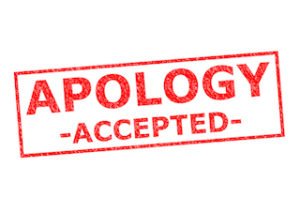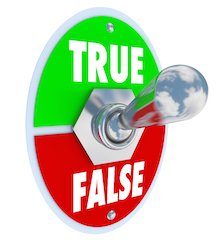If you’re a solo practitioner looking to hire your first employee, you’re no doubt asking yourself: “How do I hire an honest employee?”
If you’ve hired employees in the past, you also know finding one honest employee is no guarantee of hiring another. But you must keep searching for people with integrity, because hiring an unethical or criminal employee can seriously damage your firm.
Unfortunately, there will always be people who view your client base and office as a personal invitation to steal. There’s no point bemoaning this. But what you can do is protect yourself: Carefully recruit and select new employees, using every tool possible to deter unethical and larcenous conduct.
The investment you make in hiring honest employees will literally pay for itself. You’ll have fewer client complaints, arbitration settlements, or regulatory enforcement actions. Even more important, you’ll have a lower risk of experiencing client lawsuits and errors-and-omissions insurance claims. And since time is money, not having to clean up after problem employees is a welcome bonus.
But here’s the rub. Dishonest employees don’t just cost hard dollars… they also do irreparable harm to a financial advisor’s reputation. When employee crime becomes news, potential customers will hear about it on the Internet. Why would they choose a tarnished firm when so many other advisors are a Google search away?
Solution? Protect your reputation by only hiring the best, most honest employees. This means you’ll need to integrate ethics/honesty screening into every step of your hiring process.
What to do
- Be clear about the type of employee you want to hire. Ahead of time, write out a detailed profile of the desired attitudes, skills, and moral values you’re looking for. Then during the hiring process, don’t settle for anything less than your ideal candidate. Most importantly, listen to your “gut.” If a candidate feels wrong, terminate the process immediately.
- In your help-wanted announcements, make clear your firm believes in ethical business practices. Integrate phrases from your Core Values Statement (if any) in your job postings. Then state that you are looking for candidates who share your beliefs. Also point out that you will be conducting full background checks and drug screens on all candidates.
- Go over the submitted resumes. Winnow out clearly unqualified people. But also look for ethical red flags: unusual career transitions, decreasing accountabilities, and long, unexplained periods between jobs. Also look for job titles and accountabilities that seem out of proportion to the candidate’s training and experience. Conversely, people who have been entrusted with large projects and budgets and many employees to supervise have shown they are trustworthy.
- After you screen out inappropriate candidates, only those who generally fit with your requirements will remain. Invite a manageable number in for interviews.
- Have them fill out an application. Knowing that many people “fudge” their answers, “sell” them on the importance of being honest. Say something like: “We take honesty seriously around here. So please fill out this application, making sure your answers are totally accurate and complete. Also, answer all the questions about recent jobs and please include the actual reasons for leaving. We will be checking with prior employers, so again, please be truthful.”
- After they complete the application, have a short meeting to review the information and explain your selection process, which should include administering an honesty assessment. The reason for a short meeting (half an hour or less) is you don’t want to waste time with people who won’t pass the test. If you’re not currently using one, search the Internet for possibilities. Three well-known and well-respected instruments areCreative Organizational Design, the Reid Report Risk Assessment, and the Veracity Analysis Questionnaire(VAQ).
- Once you receive the honesty test results, screen out the problematic candidates. Then call the remainder in for more detailed interviews. Go over all prior jobs and discuss their reasons for leaving and future career goals. But also probe for ethical job behaviors and attitudes. Here are some good questions to ask:
• Have you ever observed a work colleague stealing? What did you do about it?
• Have you ever had a boss, colleague, or vendor ask you to do something wrong? How did it make you feel? What did you do about it?
• Have you ever done anything yourself at work that bothered your conscience? What was it and how did you respond?
• What are the main actions you take to assure client confidentiality?
The goal with these and similar questions isn’t just to hire someone who’s honest. Rather, it’s to hire someone who shares your core values. You can always train someone who’s missing desired skills. But it’s impossible to implant core values into someone who lacks them. And when those values are missing, watch out!
- OK, you’ve reached the end game. The last remaining candidates have great skills, interviewed well, and have no apparent ethics problems. But don’t relax yet. Now you need to check their references and order background and credit checks.
Reference checks are important because they verify information uncovered elsewhere in the process. Try to speak to people’s direct supervisors, then probe for excessive absences, productivity issues, and most importantly, disciplinary problems. If the person will only confirm employment dates, see if they will answer just one question: “Is the person eligible for rehire?”
Similarly, background checks are essential for rooting out criminal convictions or problematic civil lawsuits. Credit checks indicate financial instability. If you uncover large indebtedness, compare it with the candidate’s starting salary. If your job doesn’t pay enough to reasonably cover living expenses and debt payments, you’re asking for trouble. You can purchase all of these checks at a modest cost using services available on the Internet, including at the National Ethics Association.
If a candidate survives all of the prior steps, then make the person an offer. If he or she accepts it, congratulate the person for making an excellent decision—and yourself for bring such a high-quality individual on board. With any luck, this person will help you grow your business so quickly you’ll be looking for more honest employees in the near future. Good luck!
For more information on reputation management, please visit the National Ethics Association’s Ethics Center. For more information on affordable errors and omissions insurance for low-risk financial advisors, visit E&OforLess.com.













